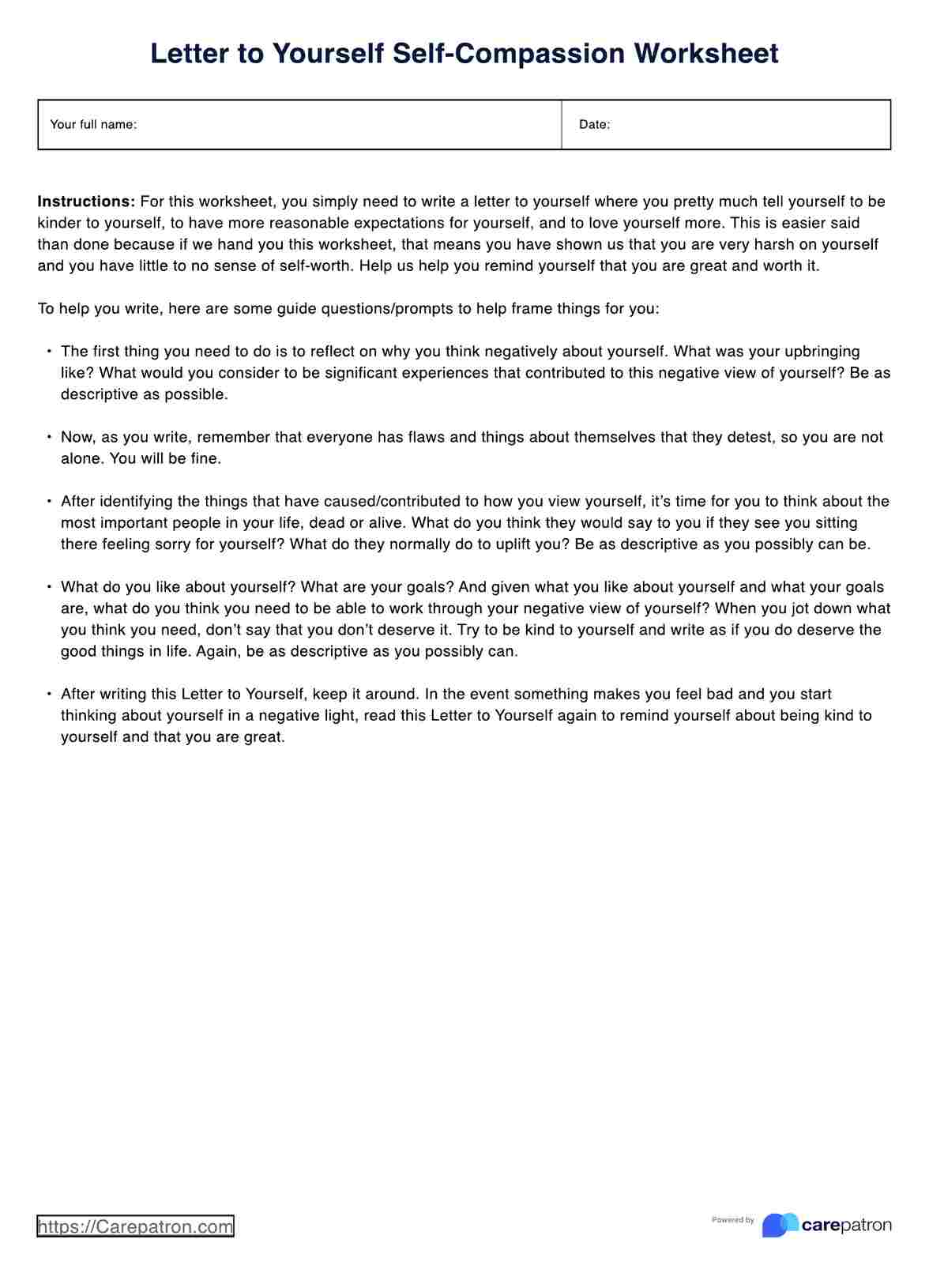Yes, but the effectiveness of these worksheets will also depend on whether the client is willing to engage with the prompts as well as if they are motivated and ready to change how they think about themselves.

Self-Compassion Worksheet
If you are helping a client who has low self-esteem, then issue this Self-Compassion Worksheet to help remind them of their sef-worth.
Self-Compassion Worksheet Template
Commonly asked questions
Typically, Self-Compassion Worksheets are easy to accomplish in concept and when it comes to the instructions. The challenge lies within the patient. Given low self-esteem and self-worth, clients may find it hard to think about themselves and feel motivated and ready to change. They might find it challenging to reflect on themselves. To help make this easy for them, you must ensure they can trust you and are in a space where they won't be judged. This will help them practice self-compassion, self-acceptance, and self-care.
Yes, but note that this is not a substitute for therapy and counseling. If you are using this for yourself, then by all means, use it. However, if you are suffering from a lack of self-compassion, self-esteem, and self-worth, we highly recommend seeing a professional. This is so that an actual care plan can be created to help you work through your mental health-related problems.
EHR and practice management software
Get started for free
*No credit card required
Free
$0/usd
Unlimited clients
Telehealth
1GB of storage
Client portal text
Automated billing and online payments











